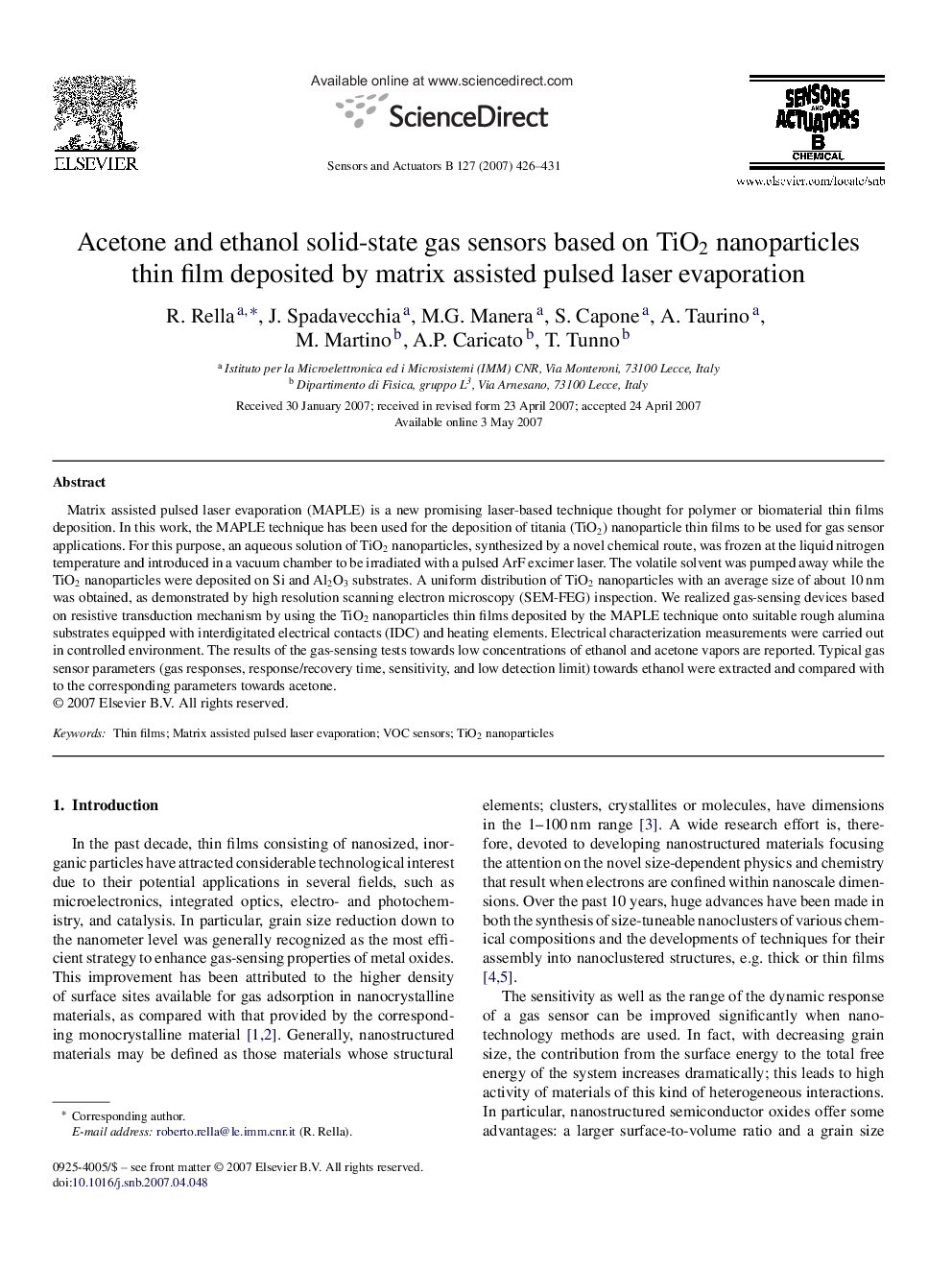| Article ID | Journal | Published Year | Pages | File Type |
|---|---|---|---|---|
| 751551 | Sensors and Actuators B: Chemical | 2007 | 6 Pages |
Matrix assisted pulsed laser evaporation (MAPLE) is a new promising laser-based technique thought for polymer or biomaterial thin films deposition. In this work, the MAPLE technique has been used for the deposition of titania (TiO2) nanoparticle thin films to be used for gas sensor applications. For this purpose, an aqueous solution of TiO2 nanoparticles, synthesized by a novel chemical route, was frozen at the liquid nitrogen temperature and introduced in a vacuum chamber to be irradiated with a pulsed ArF excimer laser. The volatile solvent was pumped away while the TiO2 nanoparticles were deposited on Si and Al2O3 substrates. A uniform distribution of TiO2 nanoparticles with an average size of about 10 nm was obtained, as demonstrated by high resolution scanning electron microscopy (SEM-FEG) inspection. We realized gas-sensing devices based on resistive transduction mechanism by using the TiO2 nanoparticles thin films deposited by the MAPLE technique onto suitable rough alumina substrates equipped with interdigitated electrical contacts (IDC) and heating elements. Electrical characterization measurements were carried out in controlled environment. The results of the gas-sensing tests towards low concentrations of ethanol and acetone vapors are reported. Typical gas sensor parameters (gas responses, response/recovery time, sensitivity, and low detection limit) towards ethanol were extracted and compared with to the corresponding parameters towards acetone.
